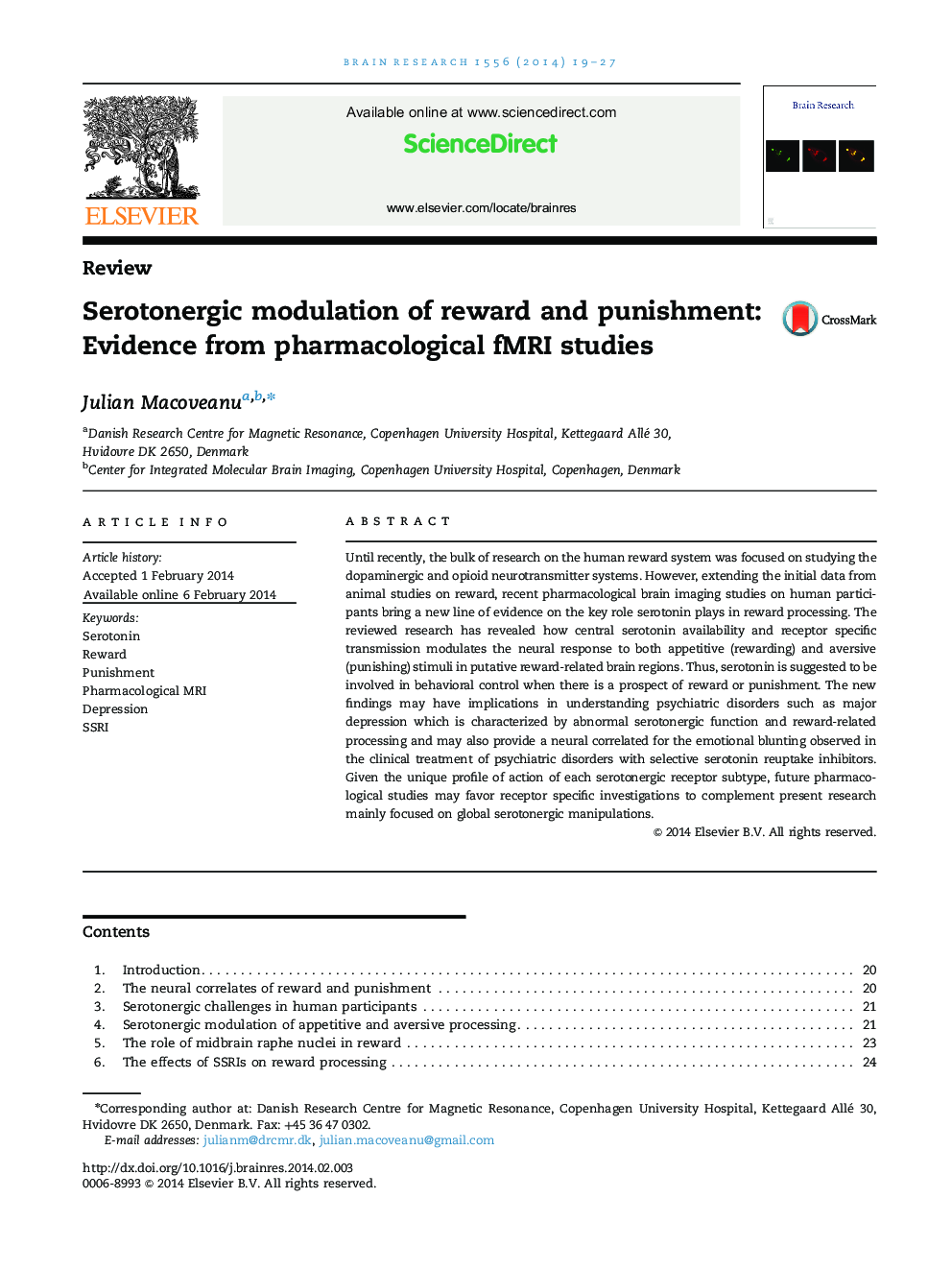| Article ID | Journal | Published Year | Pages | File Type |
|---|---|---|---|---|
| 4324348 | Brain Research | 2014 | 9 Pages |
Until recently, the bulk of research on the human reward system was focused on studying the dopaminergic and opioid neurotransmitter systems. However, extending the initial data from animal studies on reward, recent pharmacological brain imaging studies on human participants bring a new line of evidence on the key role serotonin plays in reward processing. The reviewed research has revealed how central serotonin availability and receptor specific transmission modulates the neural response to both appetitive (rewarding) and aversive (punishing) stimuli in putative reward-related brain regions. Thus, serotonin is suggested to be involved in behavioral control when there is a prospect of reward or punishment. The new findings may have implications in understanding psychiatric disorders such as major depression which is characterized by abnormal serotonergic function and reward-related processing and may also provide a neural correlated for the emotional blunting observed in the clinical treatment of psychiatric disorders with selective serotonin reuptake inhibitors. Given the unique profile of action of each serotonergic receptor subtype, future pharmacological studies may favor receptor specific investigations to complement present research mainly focused on global serotonergic manipulations.
